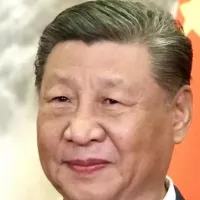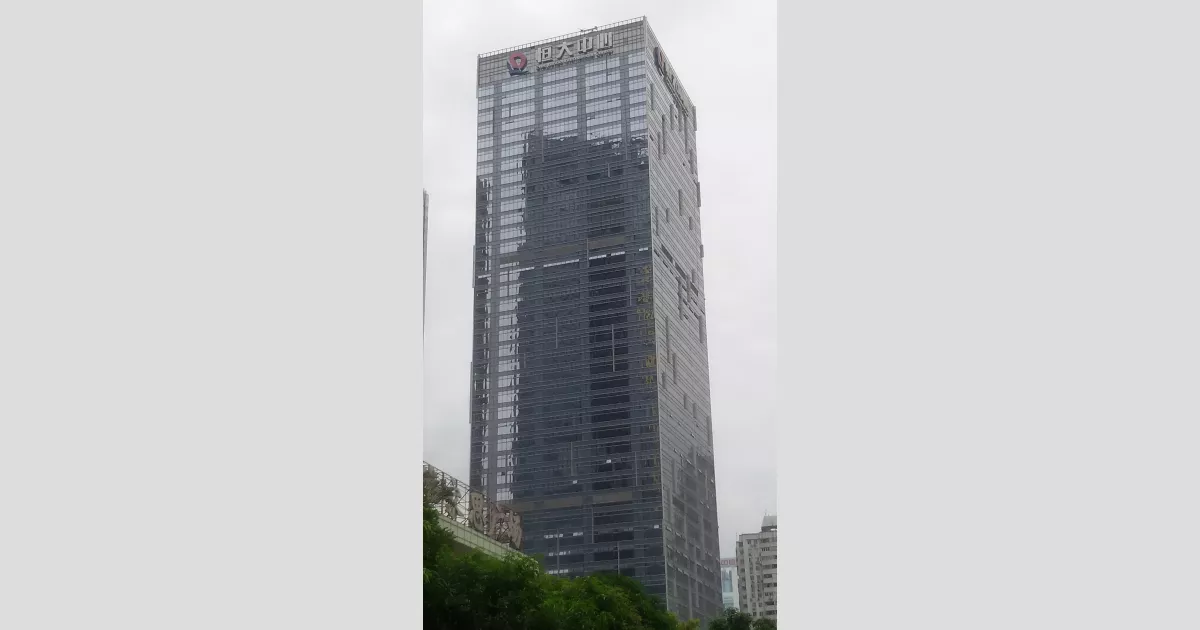China Evergrande Group, founded in 1996 by Hui Ka Yan, was a significant property developer in China, ranking as the second largest by sales. The company primarily focused on selling apartments to upper- and middle-income residents. Its large scale and influence made it a major player in the Chinese real estate market.
1996: Evergrande Group Founded
In 1996, Hui Ka Yan (Xu Jiayin) founded the China Evergrande Group, a Chinese property developer that would become the second largest in China by sales, primarily selling apartments to upper- and middle-income residents.
1996: Foundation of Evergrande in Guangzhou
In 1996, Hui Ka Yan founded Evergrande, initially called the Hongda Group, in Guangzhou during a period of significant urbanization in China.
2010: Acquisition of Guangzhou Evergrande F.C.
In 2010, Evergrande acquired football club Guangzhou Evergrande F.C. and invested heavily to acquire top players.
June 2012: Publication of Critical Report by Citron Research
In June 2012, Citron Research published a highly critical report on Evergrande Real Estate Group Limited.
2013: AFC Champions League Victory
In 2013, Guangzhou Evergrande F.C., under the management of Marcello Lippi, won the 2013 AFC Champions League.
2014: Completion of Evergrande Plaza
Evergrande Plaza, located in Chengdu, was completed in 2014 and was designed by Aedas.
2014: Launch of "Evergrande Spring" Mineral Water Brand
In 2014, Evergrande Group launched its "Hengda Bingquan" (later "Evergrande Spring") mineral water brand and invested ¥5.54 billion in it, including hiring Jackie Chan for promotion. The brand received negative attention from Korean consumers.
March 2015: Acquisition of New Media Group Holdings
In March 2015, Evergrande acquired New Media Group Holdings and renamed it Evergrande Health, which operates "Evergrande Health Valley" and works with Brigham and Women's Hospital.
September 2016: Sale of Agribusiness Units
In September 2016, after a loss of ¥4 billion, Evergrande sold its agribusiness units, including its mineral water brand, dairy business, and grain and oil business, for ¥2.7 billion.
2016: Deleveraging Campaign and Response
In 2016, the Chinese government initiated a deleveraging campaign, leading Evergrande to increase its use of supply-side finance and seek advanced payments from customers, creating liquidity issues.
2016: Suspension of Andrew Left
In 2016, the Hong Kong Market Misconduct Tribunal suspended Andrew Left for five years for publishing a critical report on Evergrande in 2012.
October 2017: Peak Stock Price
In October 2017, Evergrande's stock price reached a high of over HK$31.
2018: Became the Most Valuable Real Estate Company
In 2018, Evergrande became the most valuable real estate company in the world.
2018: Acquired Stake in Faraday Future
In 2018, Evergrande, through its Evergrande Health subsidiary, acquired a 45% stake in electric vehicle company Faraday Future for $2 billion.
July 2019: Partnership with State Grid Corporation
In July 2019, Evergrande partnered with State Grid Corporation of China to develop electric vehicle charging stations.
November 2019: Investment in New Energy Vehicles
In November 2019, Evergrande announced it would invest ¥45 billion (approximately $6.4 billion USD) over three years to develop new energy vehicles and build three production bases.
2019: Acquired 51% of NEVS Shares
In 2019, Evergrande Group acquired 51% of NEVS shares for $931 million.
2019: Revenue Overstated
In March 2024, it was found that in 2019 Evergrande overstated its revenue by 214 billion yuan, or about half.
April 2020: Construction of Guangzhou Evergrande Football Stadium
On 16 April 2020, Evergrande started the construction of the Guangzhou Evergrande Football Stadium in Guangzhou.
June 2020: Acquired Remaining Stake in NEVS
In June 2020, Evergrande Group acquired the remaining 49% of NEVS for $380 million.
August 2020: Renamed Evergrande Health to China Evergrande New Energy Vehicle Group
In August 2020, the listed company portion of Evergrande Health was renamed China Evergrande New Energy Vehicle Group Limited.
October 2020: HengTen Networks to Acquire Ruyi Pictures
In October 2020, HengTen Networks announced it would acquire Ruyi Pictures for HK$7.2 billion.
2020: Tightening of Real Estate Market
In 2020, CCP General Secretary Xi Jinping's government started tightening the real estate market, based on the principle that 'property is to be lived in, not to be speculated on', leading to the 'three red lines'.
2020: Launch of Hengchi Electric Vehicles
In 2020, Evergrande planned to launch electric vehicles branded as "Evergrande New Energy Vehicle", creating the Hengchi electric vehicle brand.
2020: Revenue Overstated
In March 2024, it was found that in 2020 Evergrande overstated its revenue by nearly 80%, or 350 billion yuan.
2020: PwC's Auditing of Evergrande
In October 2021, the accounting regulator in Hong Kong announced an investigation into PwC's auditing of Evergrande as PwC had signed off the 2020 accounts of Evergrande without reference to its uncertainties as a growing concern.
August 2021: Sold Stake in HengTen to Tencent
In August 2021, Evergrande sold a 7% stake in HengTen to Tencent for US$418 million.
September 2021: Liquidity Crisis and Stock Market Drop
In September 2021, Evergrande's payments on its debt resulted in a liquidity crisis, contributing to a drop in stock market indices on 20 September 2021.
September 2021: Start of Chinese Property Sector Crisis
In September 2021, payments due on Evergrande's debt, estimated to be in the hundreds of billions of dollars, initiated the Chinese property sector crisis, contributing to a drop in stock market indices on 20 September 2021.
October 2021: Contract Termination with Women's Volleyball Club
In October 2021, Evergrande terminated their contract with the Women's Guangdong Evergrande Volleyball Club after 8 years.
October 2021: Investigation of PwC's Auditing
On 15 October 2021, the accounting regulator in Hong Kong announced an investigation into PwC's auditing of Evergrande.
October 2021: Failed Asset Sale
On 21 October 2021, Evergrande announced that a $2.6 billion asset sale, intended to cover an $83 million interest payment missed in September 2021, had failed to close.
November 2021: Land Reserve Valuation
In November 2021, Evergrande's land reserve was worth RMB 456.8 billion, and together with 146 old reform projects, the total value of the land reserve was nearly RMB 2 trillion.
November 2021: Default on Bonds
On 10 November 2021, Evergrande defaulted on 3 more bonds after missing the grace period for interest payments.
December 2021: Official Default Declaration
On 17 December 2021, Evergrande was officially declared to be in default by S&P Global after missing a bond payment earlier in the month.
2021: Health Division Part of China Evergrande New Energy Vehicle Group
As of 2021, the health division remains a part of China Evergrande New Energy Vehicle Group Limited, and in turn, part of Evergrande Group.
2021: Financial Collapse and Property Sector Crisis
In 2021, Evergrande experienced a financial collapse, triggering a crisis in the Chinese property sector.
2021: Net Loss Attributable to Shareholders
In 2021, Evergrande had a net loss attributable to shareholders of 476 billion yuan (US$66.3 billion).
2021: Decline in Property Sales
In 2021, new restrictions lead to a downturn in the property market, with sales declining by 30%.
January 2022: Trading Suspension and Resumption
On 3 January 2022, Evergrande shares were suspended from trading, without a reason being provided by the company. Trading resumed a day later.
January 2022: Sought Moratorium on Bond Repayment
On 7 January 2022, Evergrande sought a moratorium from its bondholders on the early repayment option for one of its yuan-denominated bonds.
March 2022: Evergrande to sell Crystal City Project
In March 2022, Evergrande announced its decision to sell the Crystal City Project in Hangzhou for 3.66 billion yuan to Zhejiang Zhejian Real Estate Group and Zhejiang Construction Engineering Group, using the proceeds to repay construction debt. The deal is expected to post a gain of about 216 million yuan.
March 2022: All-Time Low Share Price
On 15 March 2022, Evergrande's share price sank to a new all-time low of HK$1.16 (US$0.15).
March 2022: Trading Suspension Price
On 21 March 2022, prior to a 17-month suspension, Evergrande stock was priced at HK$1.65.
April 2022: Construction Resumption Amid Liabilities
In April 2022, Reuters reported that construction had restarted on several Evergrande projects, despite the company's liabilities amounting to US$300 billion.
December 2022: Total Liabilities
As of 31 December 2022, Evergrande's total liabilities stood at 2.43 trillion yuan (approximately US$340 billion).
2022: Planned Electric Car Production
Evergrande NEV had stated that it would start making electric cars by 2022.
2022: Headquarters Move to Guangzhou
In 2022, Evergrande announced it would relocate its headquarters to Guangzhou to cut spending.
January 2023: PwC quits Evergrande audit
In January 2023, PwC resigned from auditing Evergrande's 2021 accounts due to disagreements.
July 2023: Debt Restructuring Court Hearings
In July 2023, court hearings were scheduled to take place in Hong Kong and the Caribbean regarding the restructuring of Evergrande's debts.
July 2023: Evergrande announces massive losses
In July 2023, it was revealed that Evergrande incurred a loss of 476 billion yuan in 2021 and 106 billion yuan in 2022.
August 2023: Strategic Investment from NWTN Group
On 14 August 2023, Evergrande Group received a $500 million strategic investment from NWTN Group.
August 2023: Evergrande Files for Bankruptcy
On August 17, 2023, Evergrande filed for Chapter 15 bankruptcy in New York.
September 2023: Chairman Placed Under Police Control
In September 2023, it was reported that Hui Ka Yan (Xu Jiayin), the billionaire chairman of Evergrande, was placed under police control. Additionally, Xia Haijun and Pan Darong were detained by Chinese authorities.
September 2023: Trading in Evergrande Shares Suspended Amidst Chairman Investigation
On September 28, 2023, trading in Evergrande shares was suspended following a report indicating that its chairman, Hui, was under police investigation for suspected crimes.
2023: Filed for Bankruptcy in the United States
In 2023, Evergrande filed for bankruptcy in the United States.
January 2024: Court-Ordered Liquidation in Hong Kong
In January 2024, a court in Hong Kong ordered the liquidation of Evergrande.
January 2024: Court Ordered Liquidation
On 29 January 2024, a Hong Kong court ordered Evergrande to liquidate due to a lack of a viable restructuring plan, resulting in the halting of trading for stocks in various Evergrande-related companies.
February 2024: Evergrande Liquidators Prepare Lawsuit Against PwC
In February 2024, Evergrande's liquidators were preparing for a potential lawsuit against its former auditor, PwC.
March 2024: CSRC Findings and Fine
In March 2024, the China Securities Regulatory Commission (CSRC) found that Evergrande overstated its revenue in 2019 and 2020, fined Evergrande 4.2 billion yuan, and suspected problems with Evergrande's bonds.
June 2024: Order to Return Subsidies
In June 2024, Evergrande NEV was ordered by the Chinese government to return 1.9 billion yuan in subsidies due to failure to meet contractual obligations.
September 2024: Chinese authorities suspend PwC operations in China
In September 2024, the Chinese authorities suspended PwC from operating in China for six months and imposed a fine of CN¥ 441,000,000 (US$62 million).
Mentioned in this timeline

Tencent is a Chinese multinational technology conglomerate headquartered in Shenzhen...

Jackie Chan born Fang Shilong is a highly influential Hong...

The stock market is where buyers and sellers trade stocks...

Xi Jinping is the paramount leader of China holding the...
Hong Kong is a densely populated special administrative region of...
China officially the People's Republic of China is an East...
Trending

42 minutes ago Official Pokémon LEGO Sets Launch Worldwide on Pokémon Day 2026!

43 minutes ago Scream 7 Premiere Sees Protests After Melissa Barrera's Firing; Cast Reunites.

43 minutes ago Stock market plunges after PPI inflation data; Dow, S&P 500, Nasdaq decline.
43 minutes ago US advises embassy staff to leave Israel amid Iran strike threats, urging speed.

43 minutes ago IndyCar Season Opens in St. Petersburg: O'Ward and Palou in Focus.

44 minutes ago Norah O'Donnell Back on CBS Mornings, Highlights Women in 'We the Women'
Popular

Jesse Jackson is an American civil rights activist politician and...

Barack Obama the th U S President - was the...

Susan Rice is an American diplomat and public official prominent...

XXXTentacion born Jahseh Dwayne Ricardo Onfroy was a controversial yet...

Michael Joseph Jackson the King of Pop was a highly...

Kashyap Pramod Patel is an American lawyer who became the...
